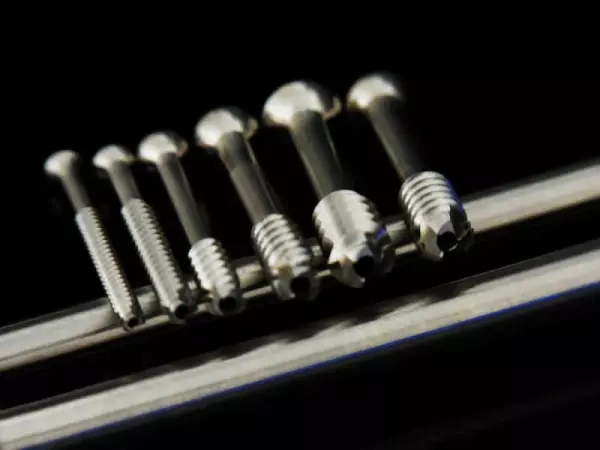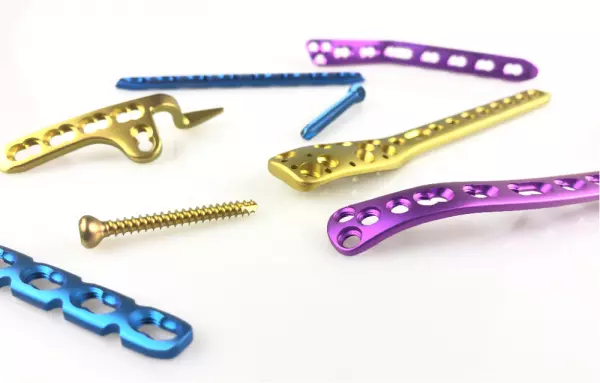
Décolletage & CNC turning / parts - contract...
Décolletage & turning - contract manufacturing for medical products In classic turning...
Portal and digital medical technology fair of the largest MedTech cluster in Germany

Décolletage & CNC turning / parts - contract...
Décolletage & turning - contract manufacturing for medical products In classic turning...

Premium-quality orthopaedic instruments and...
For use in orthopaedics,we offer premium-quality and robust instruments that meet all the deman...

The biocomposite interference screw is the new gold standard in ACL reconstruction. Unlike metallic devices, biocomposite screws do not degrade in the body, and can be repositioned as necessary. The advantages of this type of screw include excellent biocompatibility and reduced mechanical strength. The disadvantage of metallic interference screws is that they may lead to improper assessment by MRI. However, their high cost and availability make them a practical alternative to metals.
The Mg-based interference screws have a biocompatibility and corrosion resistance that are superior to titanium. These interferences can be customized to the specific needs of patients, and are sterile for one-time use. Some other characteristics of Mg-based screws are their osteopromotivating contributions and reduced stress shielding. Despite their limitations, Mg-based interference screws are expected to open a new era in tendon-bone insertion.
Currently, the most popular type of interference screw for ACL reconstruction is the Biosure PK. The Biosure PK interference screw is made of Mg alloys that exhibit similar Young's modulus to natural bone. It is a high-strength device that is widely used for ACL reconstruction. It is used to secure a graft in a bone tunnel. Moreover, Biosure PK is considered to be better than metal interference screws.
The use of Mg-based interference screws has been linked to a poorer fixation strength in the tendon graft. Besides, the presence of second phases in Mg-based interference screws can reduce their corrosion resistance. HPM-based interference screws have an excellent corrosion resistance, although they suffer from an inadequate insertion torque. An FEA model was developed to compare maximum torque and stress distribution. The results showed that the Mg-based interference screw provides the best fusion and healing results.
ACL reconstruction is a common surgical procedure. The screws are used to stabilize and repair the ACL. Mg interference screws have a lower mechanical strength than metallic ones. While their biodegradation rate is faster, they still require additional time. They can cause complications and have a high failure rate. This is why the best implants are those that have biodegradable components. In addition to Mg, a bioresorbable screw can be a biodegradable screw.
Another example of an interference screw is an ACL repair. An ACL repair involves a cadaveric allograft with a block of bone attached to both ends. A tunnel is drilled through the femur and tibia to place the bone blocks. The screws wedge into the bone block. This prevents them from moving out of position. In other cases, the Mg-based screws may be used to repair a damaged ACL.
Mg and Ti interference screws have different mechanical properties. A Mg screw has a higher yield strength of 24 MPa, whereas a Ti screw has a higher Young's modulus of 120 GPa. A Ti screw has a high failure rate, while the Mg screw has a lower yield strength of 22 MPa. A titanium implant is used in a large number of fusion procedures. The Mg screw has a lower tensile strength than the Ti version.
Become a digital exhibitor yourself in the online portal of the largest and best-known MedTech cluster region in Germany and inform the world of medical technology about your products and services as well as about news, events and career opportunities.
With an attractive online profile, we will help you to present yourself professionally on our portal as well as on Google and on social media.